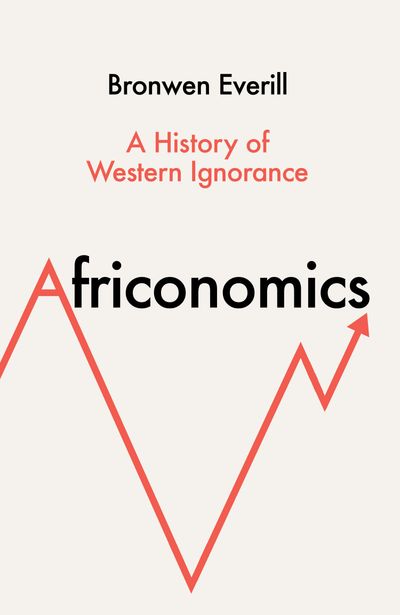Africonomics: A History of Western Ignorance
‘A wry, rollicking, and provocative history’ Michael Taylor, author of The Interest
‘A thought-provoking analysis of Africa’s relationship with economic imperialism’ Astrid Madimba and Chinny Ukata, authors of It’s A Continent
We need to think differently about African economics.
For centuries, Westerners have tried to ‘fix’ African economies. From the abolition of slavery onwards, missionaries, philanthropists, development economists and NGOs have arrived on the continent, full of good intentions and bad ideas. Their experiments have invariably gone awry, to the great surprise of all involved.
In this short, bold story of Western economic thought about Africa, historian Bronwen Everill argues that these interventions fail because they start from a misguided premise: that African economies just need to be more like the West. Ignoring Africa’s own traditions of economic thought, Europeans and Americans assumed a set of universal economic laws that they thought could be applied anywhere. They enforced specifically Western ideas about growth, wealth, debt, unemployment, inflation, women’s work and more, and used Western metrics to find African countries wanting.
The West does not know better than African nations how an economy should be run. By laying bare the myths and realities of our tangled economic history, Africonomics moves from Western ignorance to African knowledge.
'In this wry, rollicking, and provocative history of international economics, Bronwen Everill shows us how, over the course of centuries, Western ideals have collided repeatedly and disastrously with African realities - and how even the best-intended of interventions have often paved a road to hell' Michael Taylor, author of The Interest -
”'A thought-provoking analysis of Africa's relationship with economic imperialism” - Astrid Madimba and Chinny Ukata, authors of It’s A Continent
”'This book outstandingly analyses the shortcomings of a certain approach to thinking about Africa, and it implicitly indicates the other side of the coin: the forces for change that will continue to shape the continent from within” - Kofi Adjepong-Boateng, Centre for Financial History, University of Cambridge
REVIEWS FOR NOT MADE BY SLAVES: -
'Impressive…[Readers] will be rewarded with greater understanding of historical developments that changed the relationship between consumers and producers in a global economy in ways that reverberate to this day' Wall Street Journal -
'Everill repositions West Africa as central to the broader Atlantic story of 18th and 19th century economic morality, its relationship with commercial ethics, and the expansion of capitalism' Financial Times -
'Offers a penetrating new perspective on abolition in the British Empire …Impressive' Jacobin -
